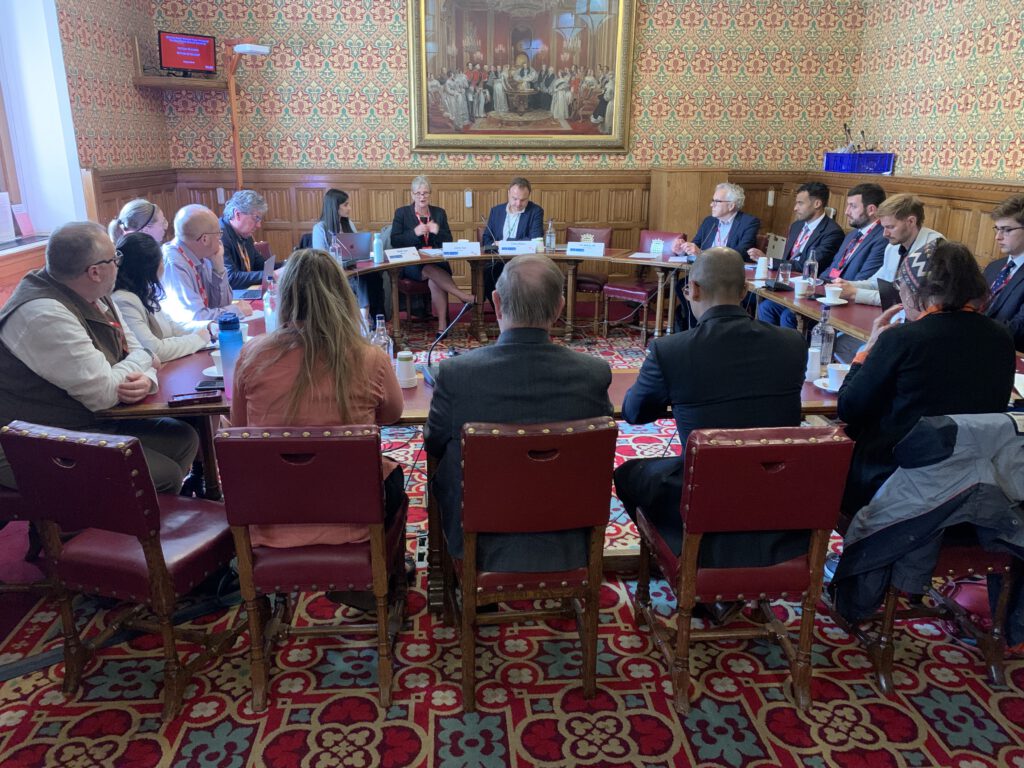On Wednesday 11 September, Policy Connect were pleased to welcome industry leaders, academics, and policymakers to discuss the critical topic of developing green skills for a sustainable future in the UK.
The session was chaired by Tristan Osborne MP, who provided valuable insights from the perspective of Labour, emphasising a renewed emphasis on the green agenda within his Party. Thanks also to Justine Fosh of Cogent Skills who contributed as a speaker.
The event aimed to address the challenges and opportunities in fostering the essential skills needed to achieve the UK’s environmental targets; focusing on promoting a circular economy, decarbonisation, and renewable energy growth.
Key Challenges Identified
- Reactive Skills Marketplace: The current skills system was described as reactive, struggling to anticipate and prepare for future needs, particularly in emerging sectors like hydrogen production.
- Coordination Across Government Departments: Participants highlighted the need for better collaboration between departments such as Housing, DESNZ (Department for Energy Security and Net Zero), and the Department for Education, to align policies on housing, net zero, and skills development.
- Skills Gap in Emerging Technologies: The discussion revealed significant skills shortages in critical areas, with estimates suggesting a need for 75,000 workers in the hydrogen sector and 250,000 in construction.
- Retraining Existing Workforce: Concerns were raised about the willingness of experienced workers, particularly those nearing retirement, to retrain for new green technologies.
- Regional Disparities and Duplication: While regional activity is important, there was felt to be a risk of duplicated efforts in developing net zero skills programmes across different parts of the UK.
Opportunities and Recommendations
- Systems Thinking Approach: Participants advocated for a holistic view of skills development that transcends individual sectors, focusing on core capabilities applicable across industries.
- Proactive Skills Planning: There was a call for a more forward-looking approach to skills development, anticipating future market needs rather than reacting to current shortages.
- Enhanced Collaboration: Strengthening partnerships between industry, universities, and further education colleges was seen as crucial for developing relevant curricula and research.
- Improved Labor Market Intelligence: Better data and information sharing across industries could help identify future skills needs more accurately.
- Global Perspective: Recognising the global nature of the skills market, participants called for clarity on policies regarding international students and workers.
- Defining Green Skills: There was a push to broaden the definition of green skills to include roles that support reducing the “circularity gap” and contribute to sustainability efforts.
Looking Ahead
We extend our sincere gratitude to our Chair, speakers and participants for their insightful contributions to the day’s discussions on this important theme.
This roundtable served as a starting point for shaping Policy Connect’s future policy discussions and research agendas. Insights from the discussion will contribute to ongoing policy development, helping to shape our approach to green skills initiatives in the new Parliament.
As the UK strives to meet its environmental targets, the development of green skills remains a critical challenge and opportunity. By addressing the issues raised in this roundtable and implementing the suggested strategies, the UK can position itself at the forefront of the green economy, creating sustainable jobs and contributing to a cleaner, more sustainable future.
If you’re interested in finding out more about this work, please contact Katy.Haigh@policyconnect.org.uk or Alainah.Amer@policyconnect.org.uk




